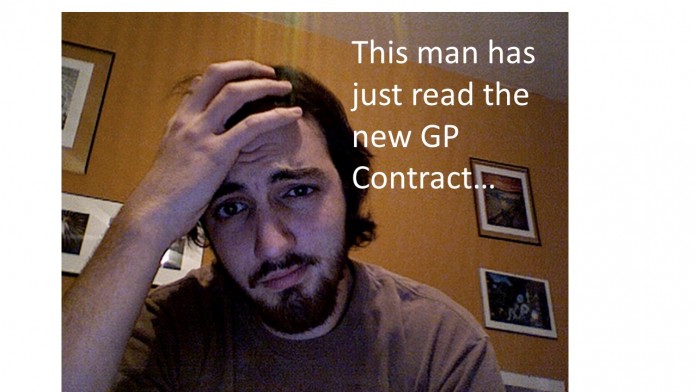There has been a cautiously positive reaction to the GP contract. But for at least one enthusiast for general practice, it doesn’t live up to its promise. Here, Ben Gowland explains his huge disappointment…
The GP Forward View was published in April last year. It promised an additional recurrent investment of £2.4bn into general practice. But for all its rhetoric, the finances have been hard to pin down. After a raft of national pots of money that have all translated into very little at local level, all hopes were pinned on additional money arriving in the core contract.
And has it? Well in 2015/16 the contract was uplifted by £220m, the equivalent of 3.2%. That was pre-GPFV. So what was the outcome of the 2016/17 contract, the first one after the publication of the GPFV? An uplift of £239m, or 3.3%. An almost identical award.
What does it mean for the promised additional £2.4bn? Well at the current rate of uplift, which does not like it will change, an additional £1.3bn will have been added by 2020/21. The global numbers sound a lot, but the reality is last year’s contract award did little to assuage the problems faced by general practice, and there is no reason to believe that similar uplifts next year and for three years afterwards will have a greater impact. The rises continue to be offset by a parallel growth in costs.
The tinkering with the elements of the contract, and moving money from one part of the contract to another, really only acts as a smokescreen for the overall failure to invest. It creates opportunities for people who don’t understand general practice to complain about specific elements (e.g. funding the cost of CQC registration), and leads to odd behaviours (e.g. locums increasing their fees by 2% because of the indemnity reimbursement).
The only significant recurrent additional funding in the GPFV, on top of the contract awards, is the funding for additional access. This is £500m, and we know it translates into £6 per head of population. But it is not funding for individual practices. The sites involved in the prime minister’s challenge fund, which receive the money recurrently from April onwards, have to bid for a large single contract. So it is only really available to large organisations. Plus, individual practices just don’t want to do it. As one GP explained to me, if a practice receives what amounts to £115 per patient for 8 – 6.30 Monday to Friday, why would they extend that to 8 to 8 7 days a week for an additional £6 per patient?
So where is the rest of the GPFV money? £2.4bn has been promised. £1.3bn will be in the core contract. £500m is for extended access. Where is the other £600m? I have not yet met anyone who can answer this. It begs the question as to whether it will ever arrive.
Worse, NHS England are predicting a £70m underspend on primary care and public health budgets this year. An underspend that will offset an overspend in the acute sector. Changes to the tariff have pushed many CCGs into financial difficulties, and it seems unlikely all will be able to meet the requirement to provide £3 a head to general practice in the next 2 years. And it is not official, but I am yet to meet someone who does not believe the promised £900m capital fund (the Estate and Technology Transformation Fund, or ETTF) has been cut.
The GPFV made specific promises about putting funding into general practice. This year’s contract award was the last chance for NHS England to demonstrate it was going to meet these promises. But the contract disappoints, and instead reinforces a growing belief these promises are never going to be met.


No Comments